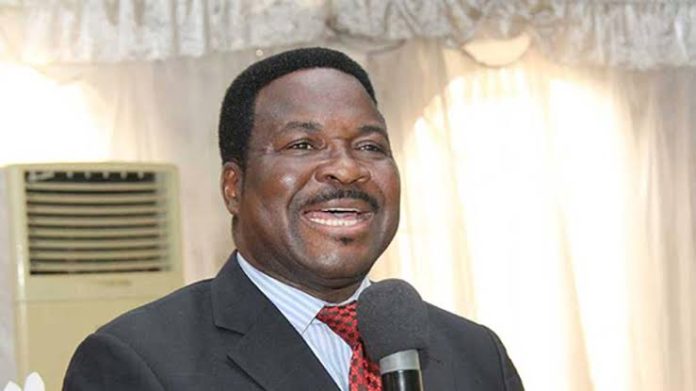In a powerful address that cut through societal norms and challenged deep-seated prejudices, Professor Mike A.A. Ozekhome, a Senior Advocate of Nigeria (SAN), shone a spotlight on the pervasive hardships faced by Persons with Disabilities (PWDs) in Nigeria. Speaking at the 12th annual “Rights Above Charity” Lecture, Ozekhome laid bare the stark realities of life for millions of Nigerians with disabilities, exposing widespread discrimination, exploitation, abuse, and neglect across nearly every sphere of life.
Held in Benin City to commemorate the upcoming International Day for Persons with Disabilities (IDPD) on December 3, 2023, the lecture provided a powerful platform for Ozekhome to advocate for transformative change. He called on the government and society to reframe their approach to disability, moving away from outdated, charity-based views and embracing a rights-based framework that upholds the dignity, worth, and potential of all citizens.
“Persons with disabilities do not seek pity, nor do they require superficial sympathy,” Ozekhome asserted, challenging common misconceptions. “What they need is empathy—an understanding that drives action, policies that support equality, and laws that ensure their full inclusion.” His message highlighted a crucial shift: society’s treatment of people with disabilities must go beyond symbolic gestures and take the form of actionable, sustainable solutions that recognize their full rights and contributions to society.
Ozekhome’s lecture underscored the daily struggles faced by PWDs in Nigeria, touching on barriers within families, educational institutions, and broader society. From limited access to public spaces and education to stigma and exclusion in social and economic life, the SAN painted a vivid picture of how societal structures compound the challenges of living with a disability. He pointed out that Nigeria’s public awareness about disability rights remains woefully low, contributing to a culture of neglect and mistreatment.
At the heart of Ozekhome’s address was a call for comprehensive action across multiple fronts. “We need robust government policies that go beyond token gestures,” he urged. He called for the provision of assistive devices, increased training for security personnel to better handle issues concerning PWDs, and the active enforcement of laws already in place to protect their rights. One such law, the Discrimination Against Persons with Disabilities (Prohibition) Act 2018, was highlighted as a significant step in the right direction; yet, Ozekhome pointed out, its implementation has been far from adequate. Despite its progressive provisions, the Act’s promise remains largely unfulfilled, leaving many PWDs without the protections and support they are entitled to.
Ozekhome’s powerful critique did not end there. He questioned the “sympathy-based” view that society often extends toward PWDs, noting that such an approach only serves to reinforce the notion of PWDs as “victims” in need of charity rather than equal citizens with rights. “It is not the disability itself that impairs the disabled person,” he declared. “It is society’s perception of disability—often tinged with condescension and neglect—that truly impairs them.” His words underscored the importance of a societal shift in perspective, one that celebrates the diversity and resilience of PWDs and recognizes their unique contributions to the social fabric.
The need for empathy, he explained, extends beyond individual acts of kindness; it must be embedded within Nigeria’s institutions, policies, and legal frameworks. Empathy, in this context, means creating environments and opportunities that empower PWDs to thrive. “The value of PWDs cannot be reduced to occasional acts of charity,” Ozekhome emphasized. “We must build systems that treat them as equal stakeholders in the nation’s development.”
As part of this shift from charity to rights-based advocacy, the National Association of Persons with Visual Impairment and Disabilities (NAPVID), in collaboration with other disability rights organizations, plans to use the upcoming IDPD on December 3, 2024, as a day of assessment and renewed advocacy. With the theme of this year’s “Rights Above Charity” Lecture titled “From Margins to Mainstream: Implementing the Edo State Persons with Disability Law 2022 for an Inclusive and Equitable Society,” NAPVID aims to re-evaluate Nigeria’s progress on disability inclusion and press for more robust action on the Edo State legislation specifically.
The Edo State Persons with Disability Law, enacted in 2022, offers a beacon of hope for PWDs within the state and serves as a model for other regions to emulate. However, as Ozekhome pointed out, laws are only as effective as their implementation. NAPVID and other advocates are determined to move beyond the legislation itself, pushing for concrete actions that will create real change in the lives of PWDs.
This year’s lecture served not only as a rallying cry for greater accountability but also as a reminder that a just society must prioritize the dignity, rights, and contributions of all its members. Ozekhome’s message was clear: until Nigeria replaces its sympathy-driven approach with a genuine commitment to the rights of PWDs, true equality will remain elusive.
As Nigeria prepares for the International Day for Persons with Disabilities, the momentum is building for a future where PWDs are fully integrated into every aspect of society—not as passive recipients of charity, but as active contributors and rights-holders. The journey from the margins to the mainstream, as articulated in Ozekhome’s powerful address, is both a moral imperative and a testament to the nation’s commitment to justice and equity for all.


